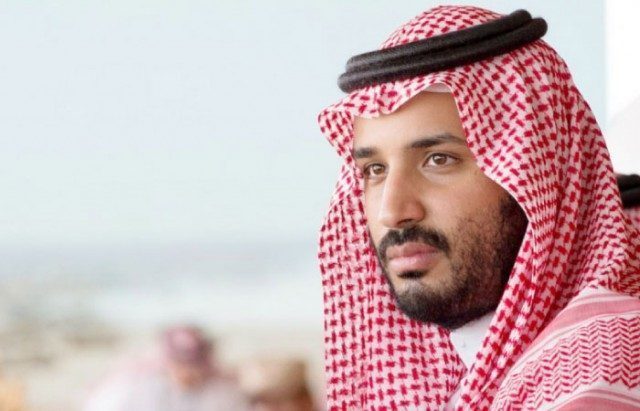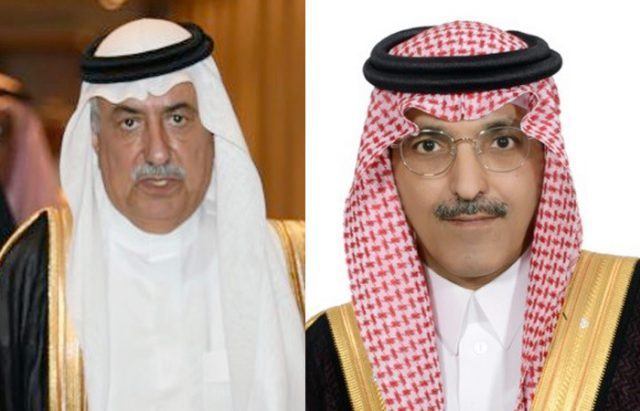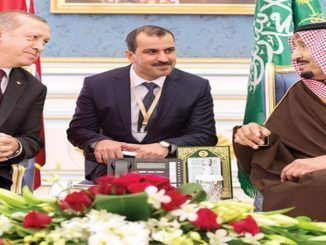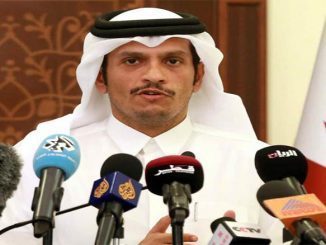
In a surprise move, the Saudi royal excused on October 31 Ibrahim Al-Assaf, the Minister of Finance from his post and replaced him with the market regulator Mohammed Al-Jadaan, formerly head of the kingdom’s Capital Markets Authority.
This decision is always a big move in the Saudi politics, that is the appointment of a new Saudi finance minister for the first time in 20 years.
According to the royal decree, the excused Minister will remain a member of the Council of Ministers.
Since taking power early last year, King Salman has replaced the ministers of oil, foreign affairs, trade and economy as the kingdom grapples with low oil prices.
The set of royal orders issued also replaced the public transport chief and the governor of the Saline Water Conversion Corporation, among other officials
– Wide support for young generation even if without experience
The Saudi royal decree decision comes parallel to the kingdom new direction led by the Deputy Crown Prince Mohammed bin Salman, who oversees the kingdom’s economic and defence portfolios.
According to media reports, the goals of Mohammed bin Salman’s economic plan “vision 2030”, is behind the appointment of younger generation to bureaucrats.
“Most of the new senior positions are going to younger, less experienced people”, Fahad Nazer, who worked at the Saudi embassy in Washington told Bloomberg.
The last positions of the excused Saudi Minister of Finance, Ibrahim Al-Assaf, toward the Saudi market and economic, might be one of the reasons that accelerated the move of Excused him from his post.
Oil Price website said that Ibrahim Al-Assaf has always defend a set of austerity measures aimed at propping up the kingdom’s finances.
The country last year booked a budget deficit of over 15 percent of GDP, and this year the IMF expects another deficit, albeit a bit smaller, at 13 percent of GDP, reported Oil Price.
Furthermore, the declarations of Ibrahim Al-Assaf and his Deputy Minister Mohammed Al-Tuwaijri in a popular talk show on Saudi TV, concerning the steps taken to mitigate the effects of this deficit, such as canceling fuel subsidies and cutting the public administration wages by as much as 20 percent – things that did boost their popularity in the eyes of Saudi citizens, especially public servants, who complained loudly about the cuts.

-The new Minister of Finance … A new tool for Mohammed Bin Salman
Mohammed Al-Jadaan has obtained a bachelor degree in Islamic economy in 1986, and he has worked as a member of several government and agencies, including the High Economic Council. Also he is the founder of Al-Jadaan and Partners Law Firm, and he is listed in Chambers and Partners 2004-2014 as a leading lawyer in corporate/commercial and the banking/finance practice areas in Saudi Arabia
Jadaan was formerly the chairman of the Saudi Capital Market Authority (CMA) and had overseen the loosening of regulatory requirements as Saudi Arabia opened its stock exchange to foreign investors over last year.
His promotion coincides with Saudi Arabia’s first sovereign bond sale, attracting a record-breaking $67bn in investor orders. It is thought al-Jadaan will likely continue the rapid expansion of the country’s bond market.
According to The Telegraph, it is thought that al-Jadaan’s expertise will be used to help diversify the country’s economy away from hydrocarbons and into other industries like financial services, to serve Mohammed Bin Salman new vision 2030.
The Telegraph said that the new finance minister will likely prove a crucial ally for Mohammed bin Salman, the architect of the Saudi Vision 2030 reform package, as he continues to break from Saudi tradition and accrue greater favor with the incumbent ruler.
“His role will focus primarily on the overhaul of the public sector, the expansion of a nationwide sovereign wealth fund, the privatisation of Saudi Aramco, the huge state-owned oil company, and the cutting of energy subsidies”, outlined the Telegraph.
Also, Al-Jadaan will play a key role in ongoing discussions with Iran, as Opec members continue to lobby for a reduction in exportsM because without any notable movement in the price of oil, Saudi’s current budget deficit will continue to grow



